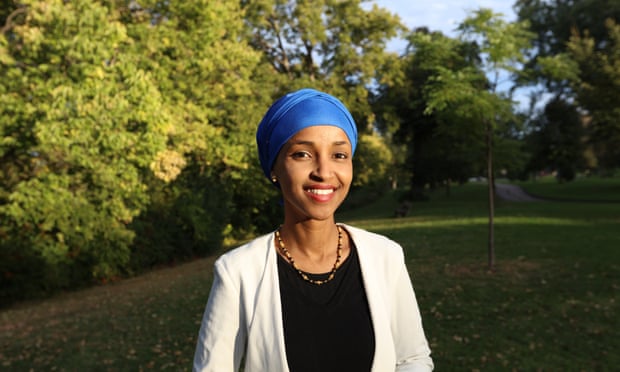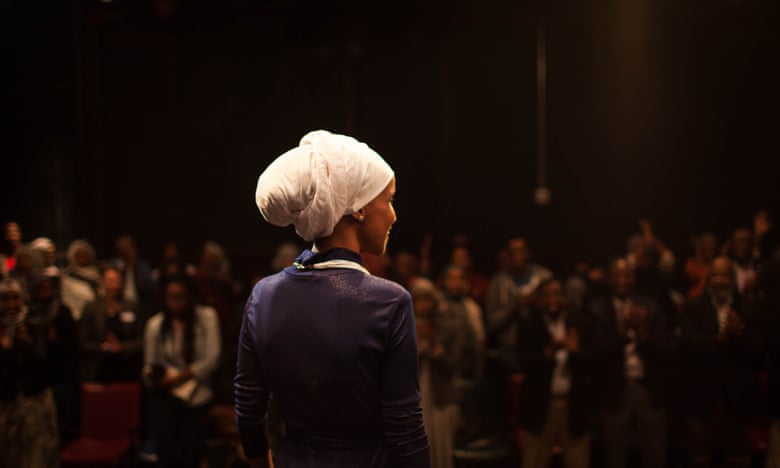Two years after a brutal attack, Ilhan Omar returns to run for a district seat – and if elected she would become first Muslim woman to hold office in the state

Two years after the attack, which left Omar with a concussion, she is returning to that same district caucus as a candidate on Tuesday. If she is elected, it is believed she will be the first Muslim, east African woman to hold elected office in the US.
“All of these identities that I carry are going to be an obstacle,” Omar said. “I wear a hijab and that’s going to be a problem, but once one person is able to do that, it then allows other people to dream too.”
Though the never-ending campaign cycle and tawdry political fighting can breed apathy and disinterest in the American political process, Omar’s family fought for political representation, engendering in Omar a deep enthusiasm and optimism about the importance of the vote.
Omar moved to Minneapolis in 1997, having fled her birth country of Somalia and lived in a refugee camp in Kenya for four years .
She was raised by her grandfather and father, who emphasized to her the importance and power of a democratic system.
So at 14, new to Minnesota and having learned English in three months, she would attend the caucuses with her grandfather, acting as his translator. “It was a free process and it wasn’t like the one he was exposed to,” she said. “In America you could be involved in a political party and you didn’t have to be a member of a specific class.”
After studying political science in college, she came back to work in the local the political scene.
Her interest was in helping minority communities navigate their government by conducting educational outreach efforts. She said while her family was always interested in politics, she is part of “this shift in young people like myself who are immigrants and are excited about getting involved in the system, while a lot of our elders are focused on being a good citizen and voting only.”
But in Minnesota’s district 60b, the optimism she felt about politics was clouded by an atmosphere reminiscent of old school American politics. An internal caucus fight created tensions between Omar and those who were supporting the longtime incumbent and a rift within the Somali community.
Omar said that one supporter of incumbent Phyllis Kahn even warned her not to attend the caucuses. But she assumed he was not referring to any physical danger. (That man, Abdi Warsame, told the Guardian Omar’s allegations about his role are “unfounded”.

No comments:
Post a Comment